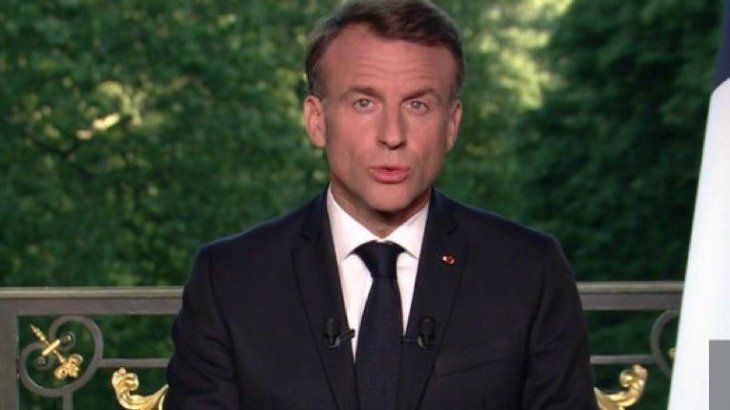After the first projections of results, the president of the European Commission and candidate for a second term, the German Ursula von der Leyen, He promised in Brussels to build a containment barrier against “the extremes.”
“We are going to build a bulwark against the extremes of the left and the right. Let’s contain them. That’s for sure,” Von der Leyen said.
“We have won the elections!” he stated on behalf of his bloc, the European People’s Party. “The EPP is the strongest political group in the European Parliament (…) A majority cannot be formed without the EPP,” he stressed.
P32 – EU-SUMMIT-BALKAN_opt.jpeg
Elections in Europe: the moderate right wins the elections
Despite the advance of the extreme right, the European Parliament projections suggest that the conservative bloc, formed by the sum of the most moderate right, the social democrats and the centrist liberals, will continue to be the majorityin a large block of 389 spaces in which fundamental commitments in legislative matters are forged.
However, although in these elections the number of MEPs went from 705 to 720, the social democrats, the liberals and the greens suffered heavy losses in number of seats.
The far-right political family is divided into two blocks. On one side, there is the Conservatives and Reformists (ECR) bloc and on the other, the Identity and Democracy (ID), separated by their position on the EU itself.
During the election campaign, Von der Leyen had opened the door to specific alliances with the extreme right group that responds to Meloni’s leadership.
emmanuel macron.jpeg

France
The projections indicate that the extreme right party National Group swept the elections in France and obtained twice as many votes as the liberal alliance launched by President Emmanuel Macron.
Given the catastrophic result, Macron gave a speech to the country and announced the call for early legislative elections, “whose first round will take place on June 30 and the runoff on July 7.”
Never before have European elections had a such a devastating impact on domestic politics from a country in the bloc.
Germany
In Germany, the largest economy in the EU, The social democratic party of the head of government, Olaf Scholz, obtained the worst result in its history and was relegated to third place, by behind the right and the extreme right.
According to projections by the European Parliament, The conservative CDU-CSU alliance would receive around 30% of the votes. The match of far-right AfD comes second with around 16%, and Scholz’s SPD party, in third with 14%.
Germany It is the country with the highest number of Eurolegislators, with 96, followed by France (81), Italy (76) and Spain (61).
Italy
Exit polls in Italy — which have a wide margin of error — indicate that Prime Minister Giorgia Meloni’s post-fascist Brothers of Italy party came out on top with between 25% and 31% of the vote.
Spain
The conservatives of People’s Party (PP) won the European elections in Spain and they got 22 seats, against 20 for the Spanish Socialist Workers Party (PSOE) of the president of the government Pedro Sánchez, according to 99% of the votes counted. The extreme right party Vox came in third place with six MEPs.
Spain It has chained municipal, regional, national and now European elections in just over a year, and each one has the flavor of revenge for the previous one.
“It is important that with our vote we decide if we want a Europe that advances or a Europe that goes backwards. And I hope it is the former, rather than the latter,” he said. Sanchez shortly after voting.
Portugal
in the neighbor Portugal, The right-wing government coalition was fighting neck and neck for first place with the socialist opposition, while the extreme right of Chega would have around 10%, in a distant third place.
Hungary
In Hungary, the Fidesz party, of the ultranationalist prime minister Viktor Orban He is set to obtain his worst result in 14 years, but he still had more than 43% of the votes.
Fidesz had arrived at these elections with voting intentions of almost 50% of the votes, leaving the main opposition party, Tisza, far away.
Poland
In the neighbor Poland, a voter, Andrzej Zemiejewski, 51-year-old doctor, assured, after voting in Warsaw, that his most pressing concern was the reinforcement of “security”, given the proximity of his country to the scene of the war between Russia and Ukraine.
In Poland, the liberal coalition launched by the prime minister, Donald Tusk It took around 38% of the votes, relegating the ultra-conservative PiS party to second place, with 33%.
Austria
In Austria, Exit polls put the far-right FPO party in front, with approximately 27% of the vote.
Source: Ambito




